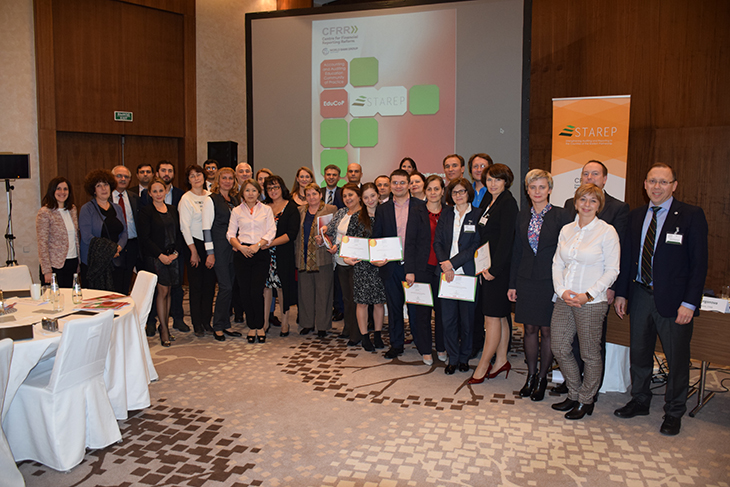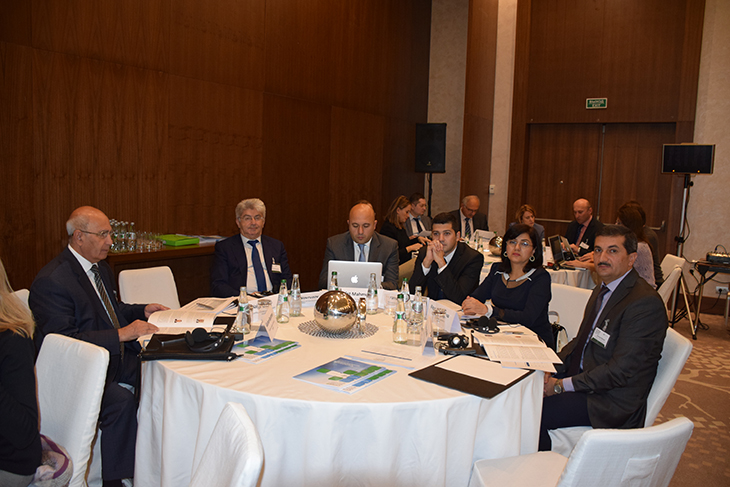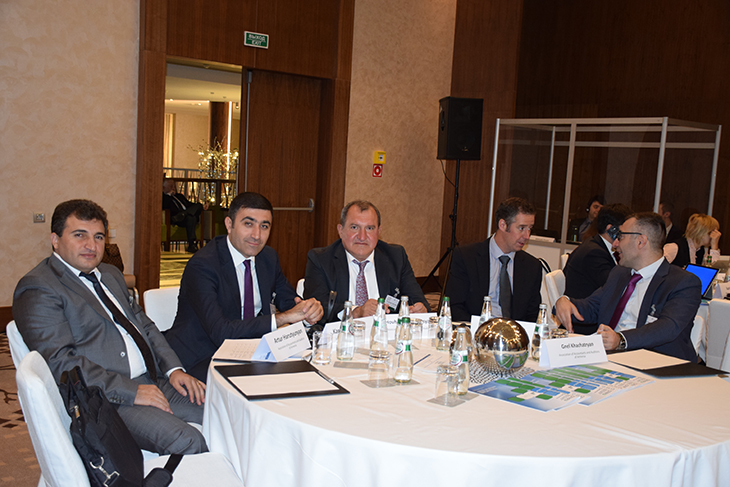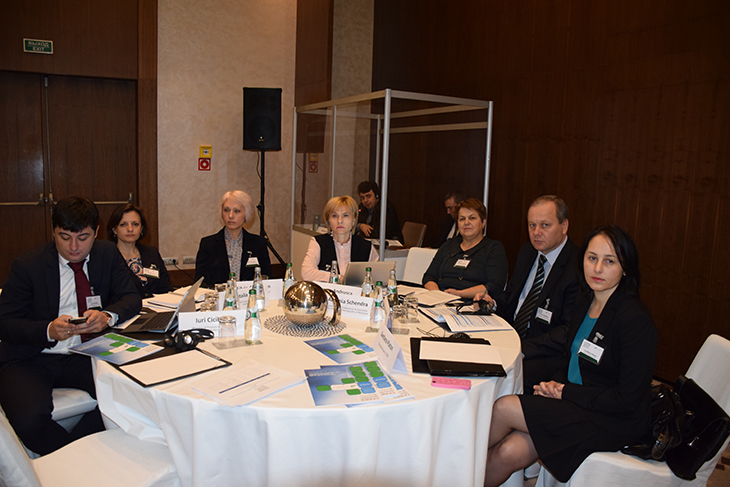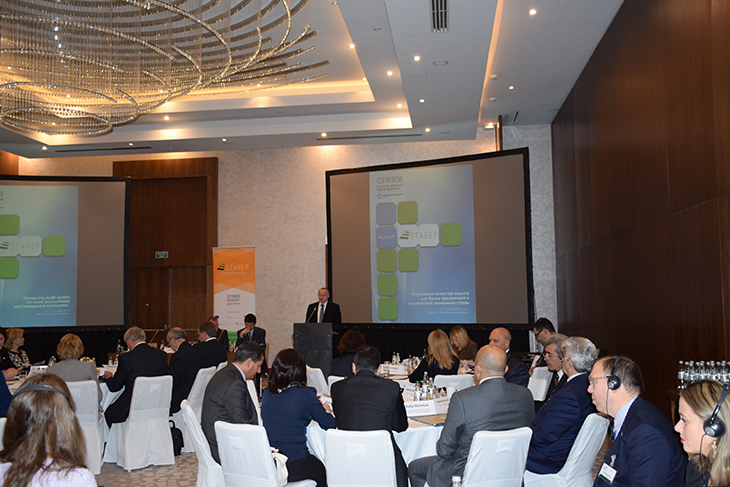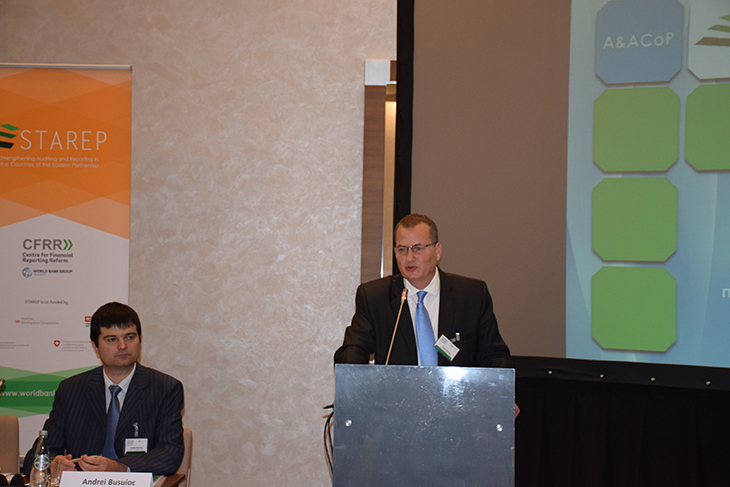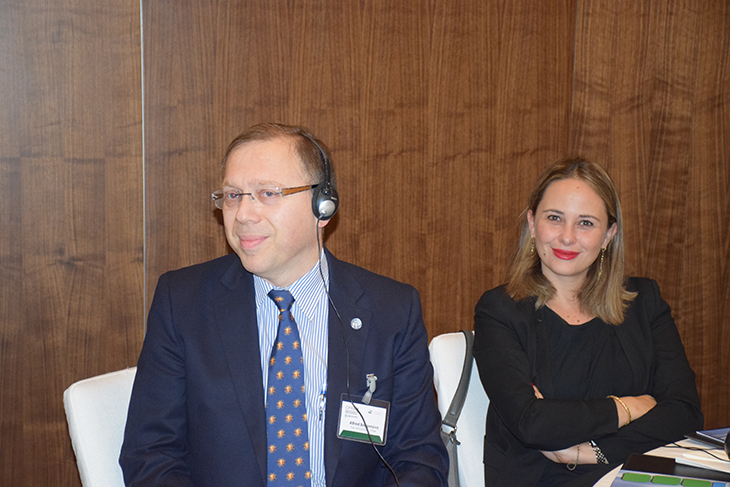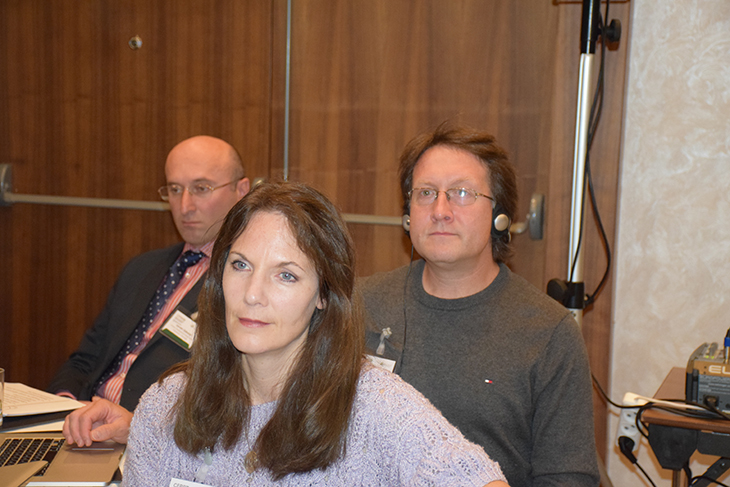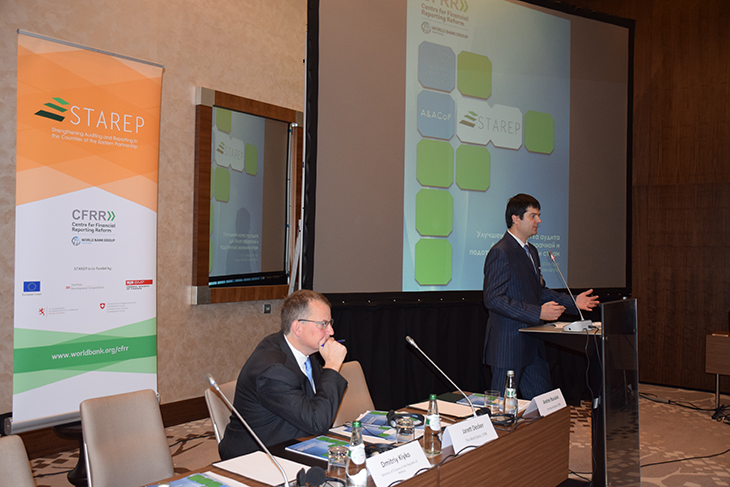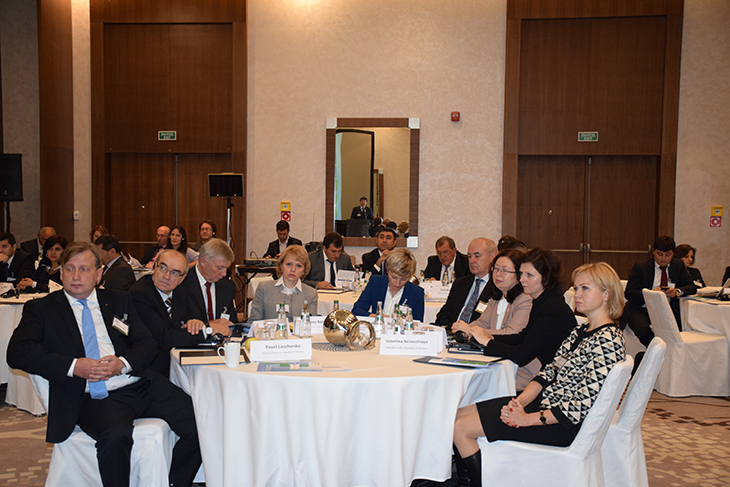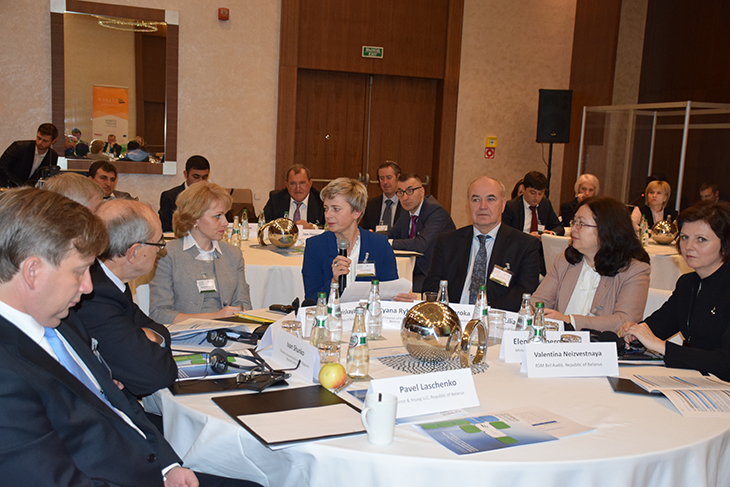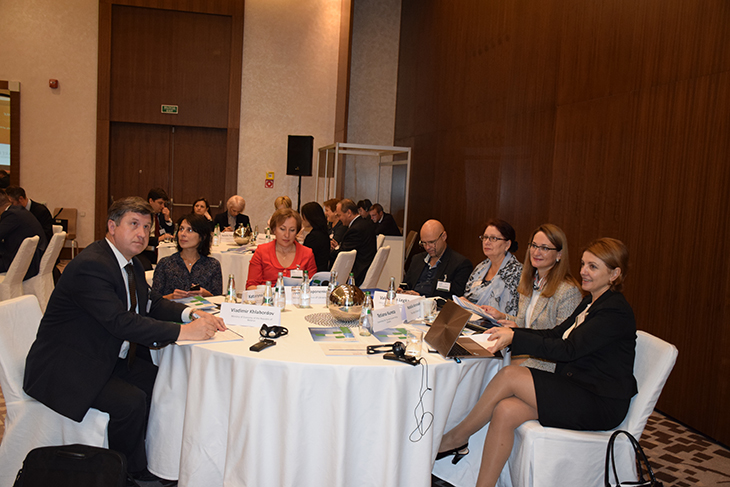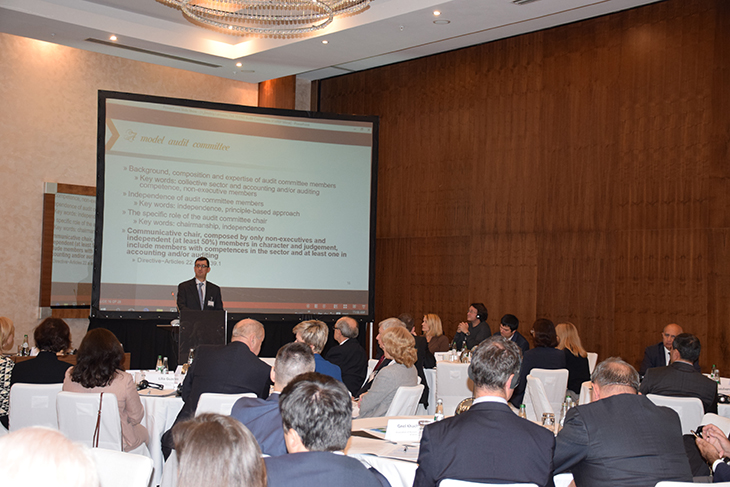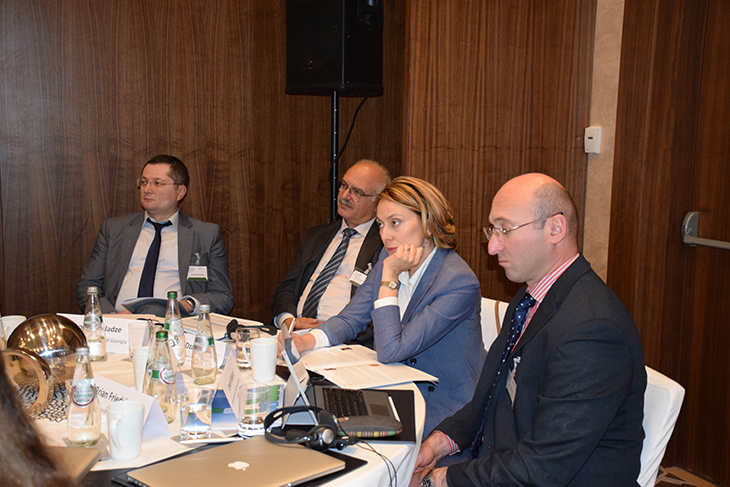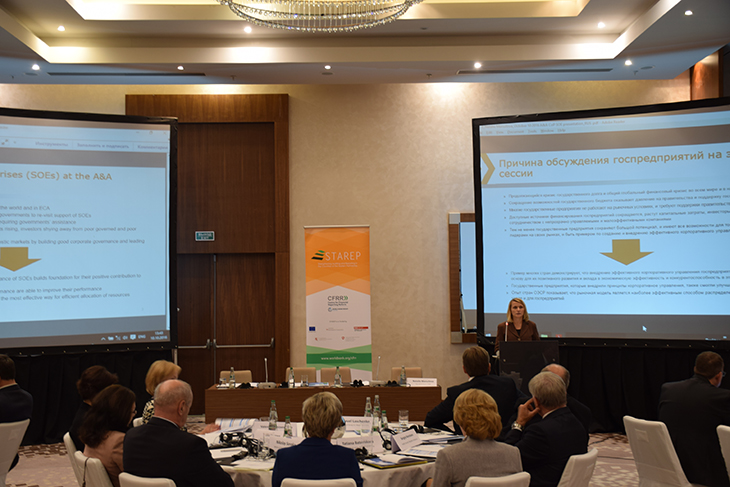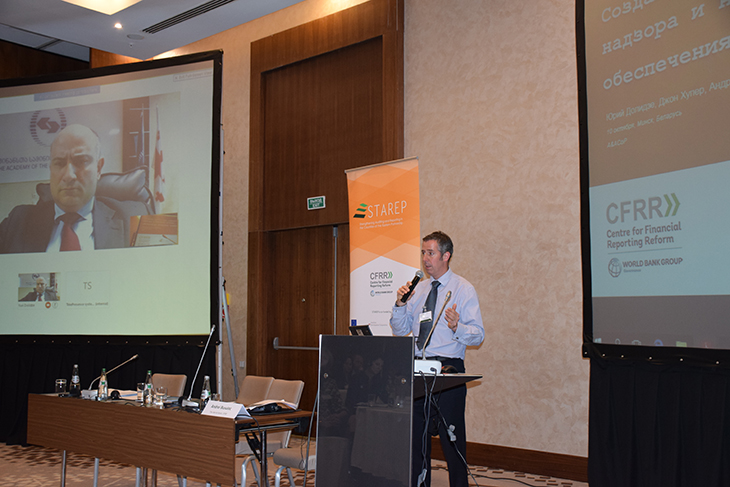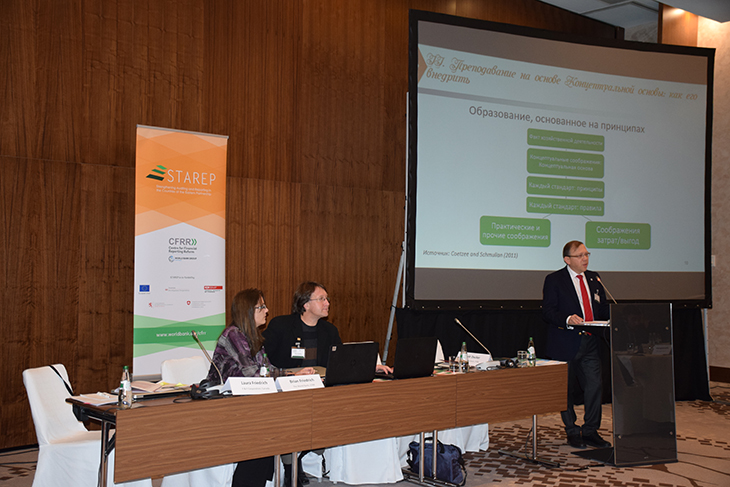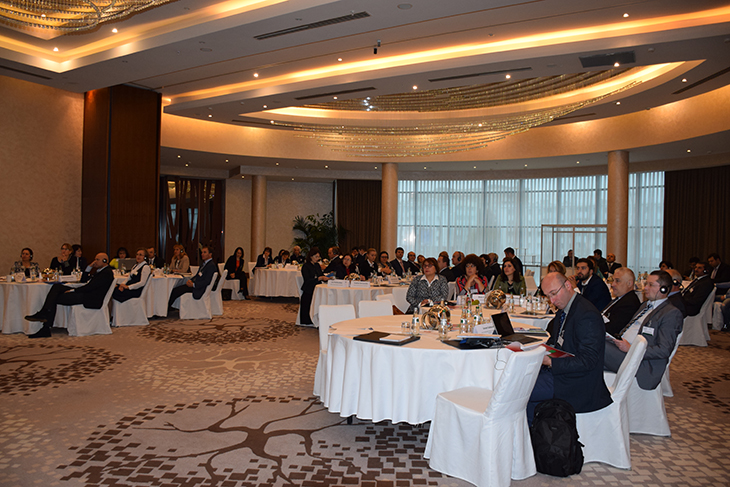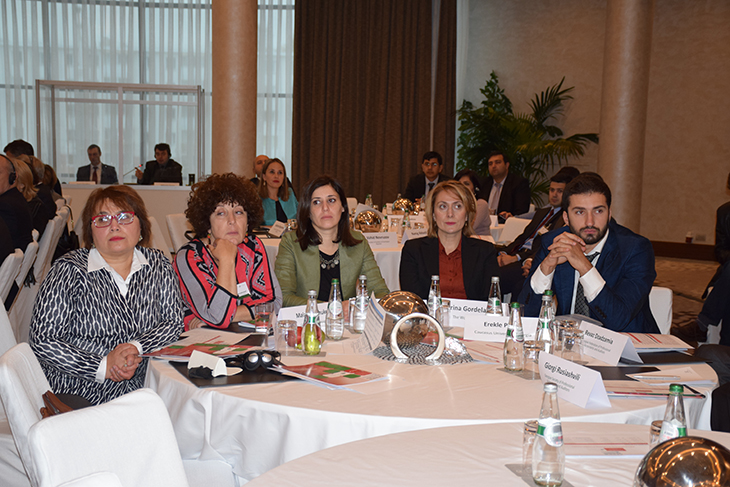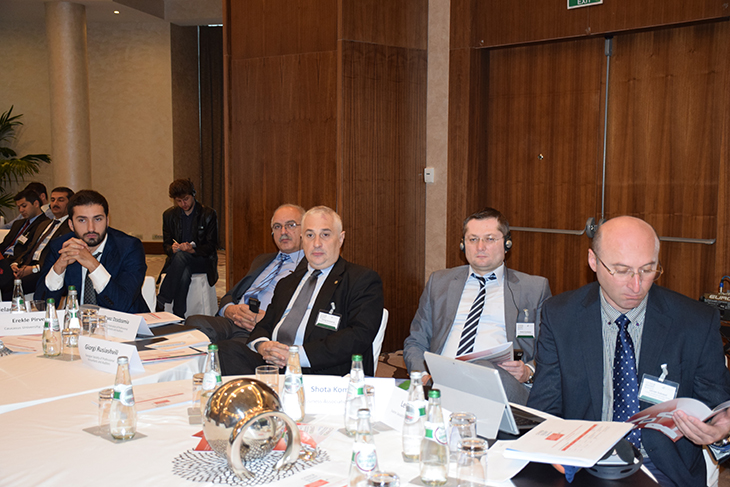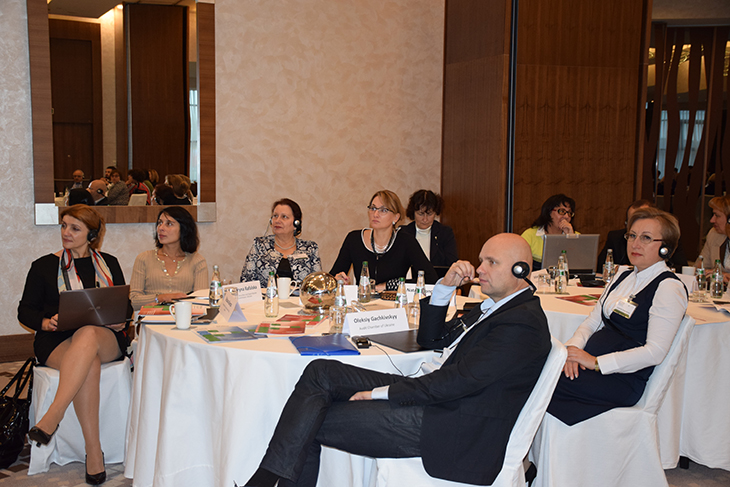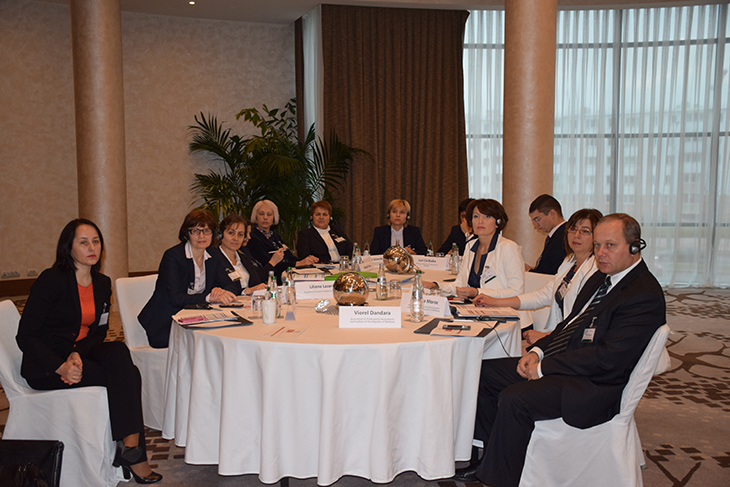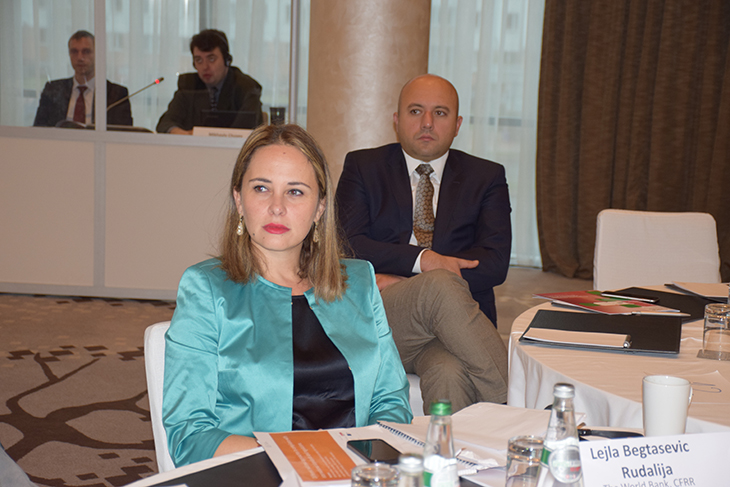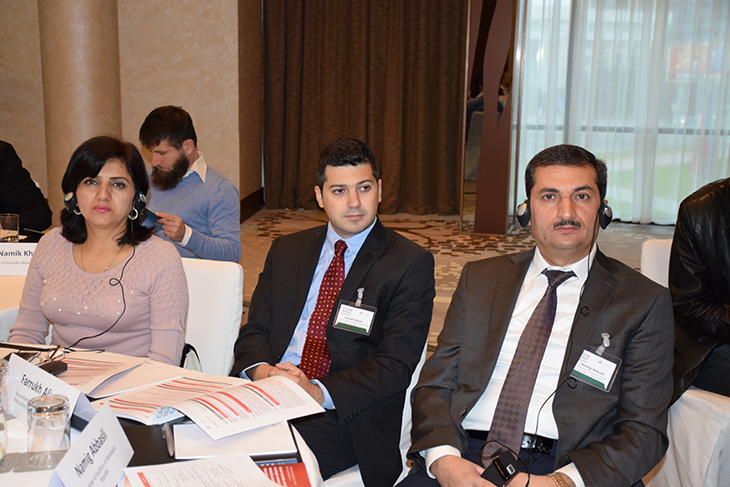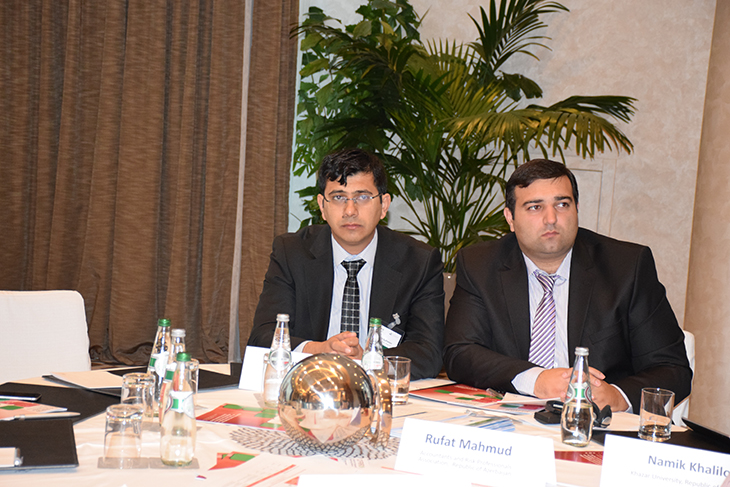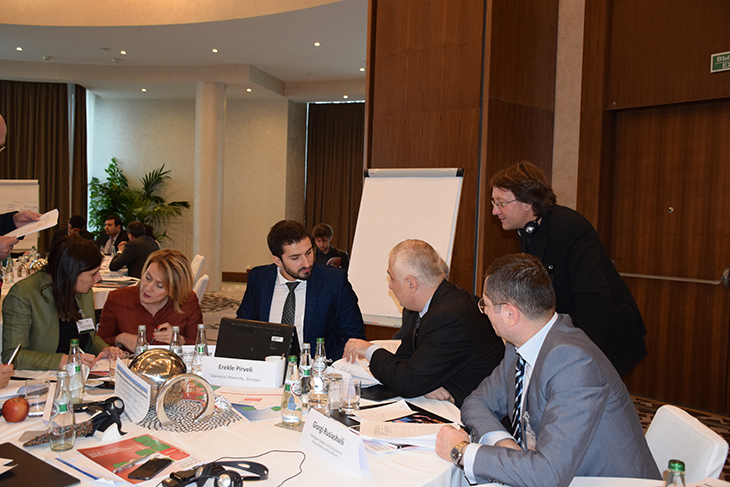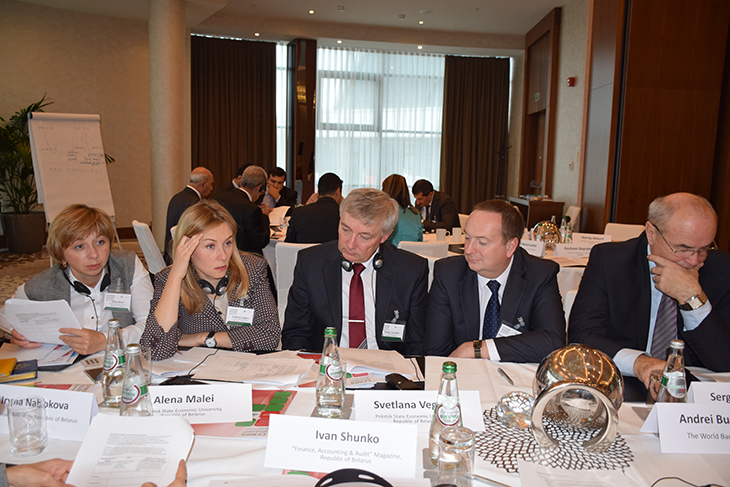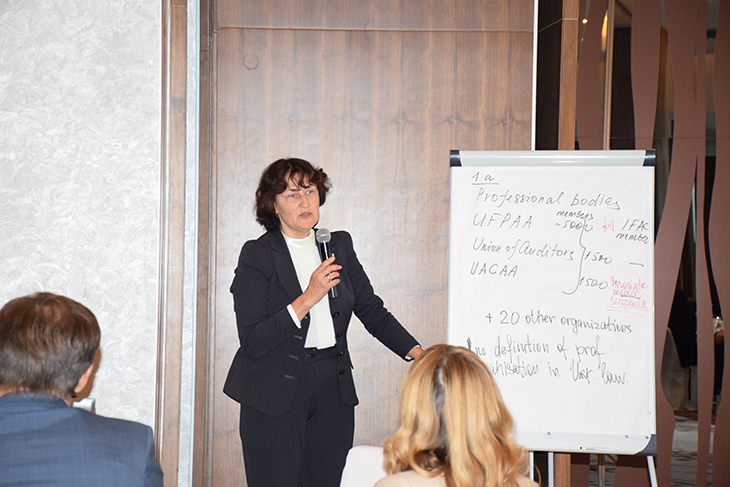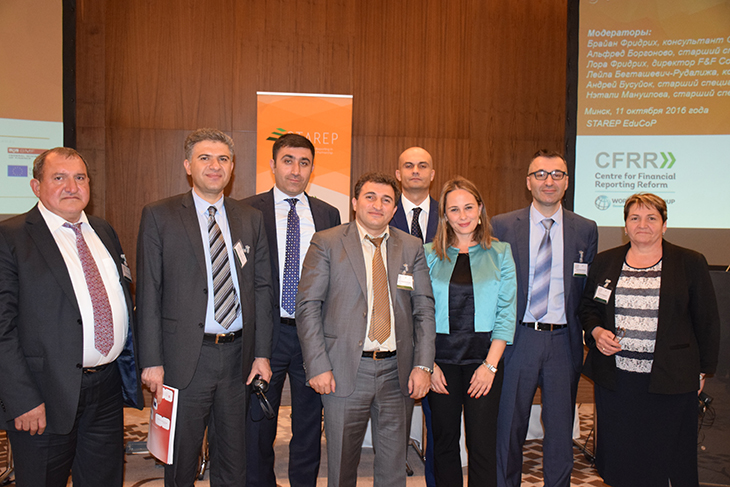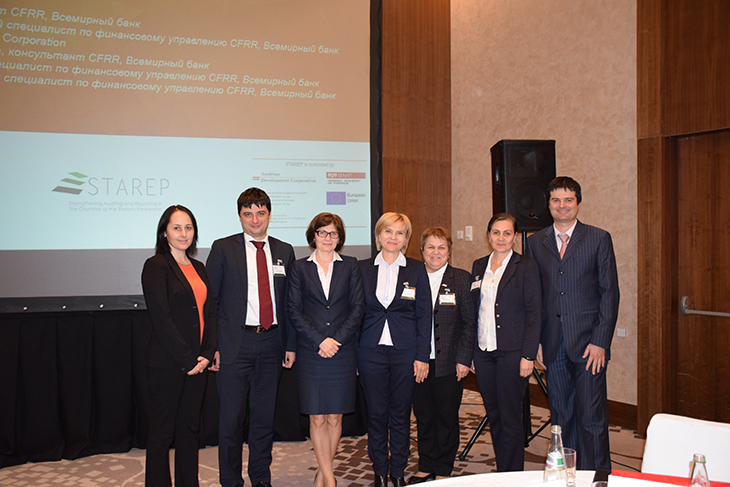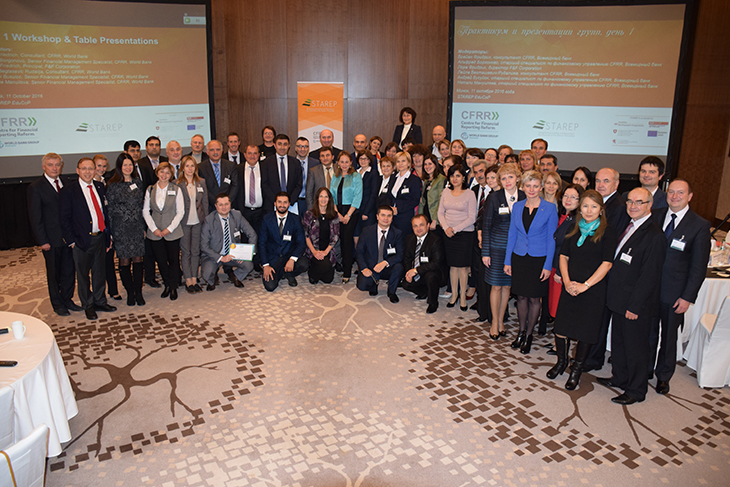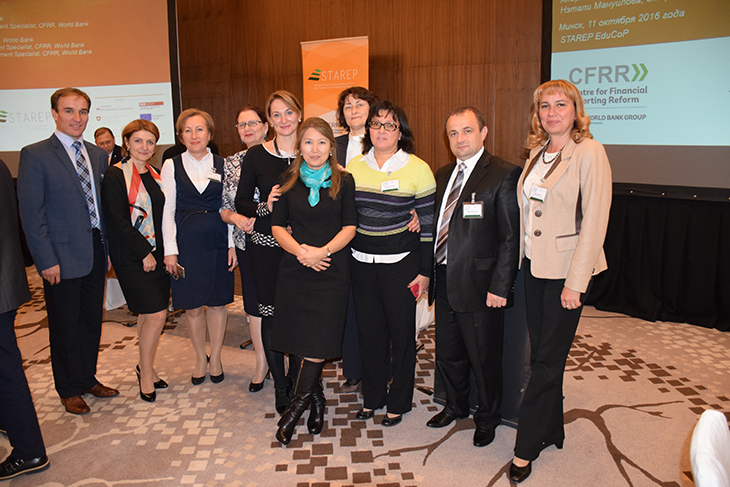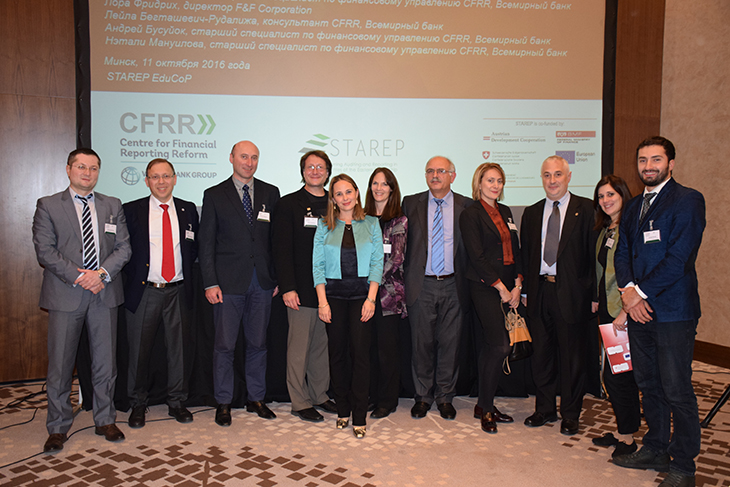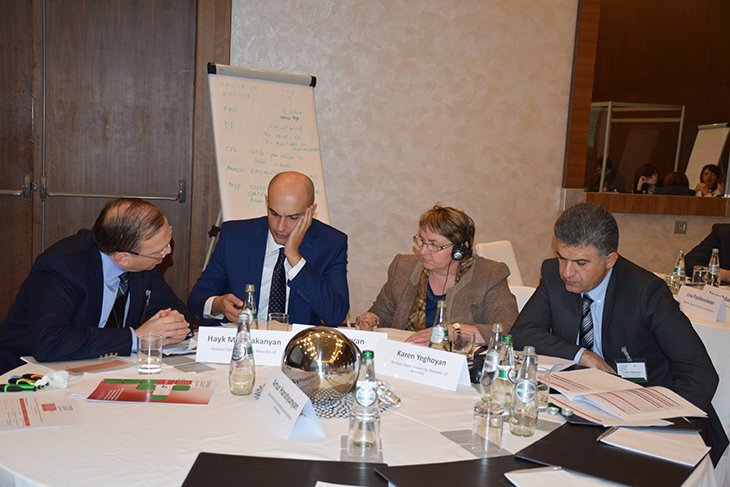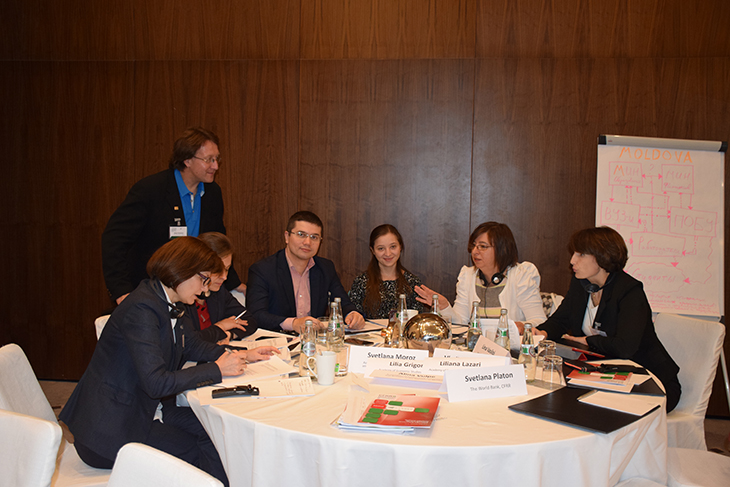Two workshops organized by the World Bank Centre for Financial Reporting Reform (CFRR) to improve audit quality in Eastern Partnership countries — Armenia, Azerbaijan, Belarus, Georgia, Moldova and Ukraine — took place in Minsk, Belarus, from 10 to 12 October.
Communities of Practice: Sharing knowledge, experiences and ideas
As part of its “Strengthening Auditing and Reporting in the Countries of the Eastern Partnership” (STAREP) program, the CFRR facilitates accounting and auditing communities of practice. Launched in 2014, these communities comprise practitioners who wish to expand their knowledge and expertise, with one community focusing on education and the other concentrating on accounting and auditing standards. The CFRR convenes regular events, such as the ongoing workshops, for practitioners from Eastern Partnership countries to share knowledge, experiences and ideas.
IFRS: helping to improve the investment climate in Belarus
Welcoming participants involved in accounting and auditing reform from the Eastern Partnership countries to the first workshop, Vladislav Tatarinovich, Deputy Minister of Finance of the Republic of Belarus, stated: “The introduction of International Financial Reporting Standards (IFRS) in Belarus from January 1, 2017, will help to enhance this country’s investment climate by aligning Belarusian rules and regulations with international standards. Foreign investors and external users of financial statements will be able to evaluate an organization’s real financial state and make economically justified investment decisions.”
Accounting and Auditing Standards Community of Practice workshop, 10 to 11 October
The first of the two workshops was designed for members of the Accounting and Auditing Standards Community of Practice (A&ACoP). It focused on the practical application of specific provisions of the European Union’s Auditing Directive, and their effects on the accountability of economies and governments. During the workshop, participants enhanced their understanding of the role of good audits in raising transparency among state-owned and private sector enterprises. Discussions centered around governance arrangements such as the importance and functions of Audit Committees, their influence on companies’ financial transparency, reporting and audits of state-owned enterprises (SOEs), as well as the role of external auditors in helping governments to identify and manage risks stemming from SOEs’ operating and financial activities. The first day culminated in discussions on the first steps in establishing a public oversight institution and a sound quality assurance system, based on practical examples of Georgia, and the peer countries of Croatia and Macedonia.
Accounting and Auditing Education Community of Practice workshop, 11 to 12 October
The first event was followed by the Accounting and Auditing Education Community of Practice (EduCoP) workshop – the seventh of its kind. This workshop brought together representatives of leading universities and Professional Accountancy Organizations (PAOs) to address accounting education reforms. EduCoP members are working together to modernize the education and development of accountants and auditors and develop a timetable for overhauling accounting education.
The objectives of this two-day workshop were as follows:
- Review the international benchmarks, standards, regulations, and trends which have an impact on the pathways to the accounting and audit profession;
- Consider how different countries have structured their education and certification programs to comply with these requirements, and identifying international best practices;
- Evaluate the current strengths and weaknesses of accounting and auditing professional education and certification models in each STAREP country;
- Identify synergies and gaps in accounting and auditing education between the university and professional levels;
- Outline a long-term vision for each country;
- Prioritize key initiatives and determine the next steps to be undertaken in the short-term.
Improving professional development in the accounting and audit profession
Day 1 featured a joint session comprising members of the A&ACoP, academia and PAOs from STAREP countries. This broad range of stakeholders explored ways to improve professional development in the accounting and audit profession.
On day 2, EduCop members worked in country groups to develop joint detailed action plans, which will be updated and implemented throughout the remainder of the STAREP EduCoP Program. The International Education Standards published by the International Federation of Accountants provided a benchmark against which participants could assess their existing education programs and prioritize reform initiatives. Successful accounting education reforms and projects in Mexico, Serbia, and Poland were also presented as examples which EduCoP members could emulate.
